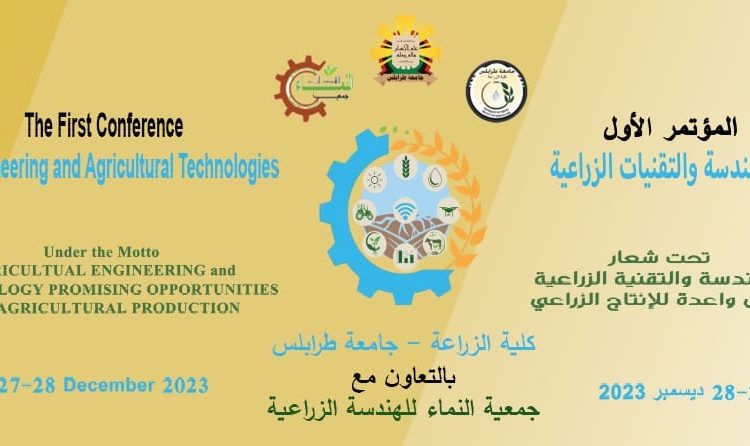The College of Agriculture at the University of Tripoli is holding the First Conference on Agricultural Engineering and Technologies from 27 to 28 December.
A member of the conference’s Media Committee, Ahmed Al-Hamali, said in an exclusive interview with Libya Herald that preparations have been completed to begin the conference activities on the 27th and 28th, organized by College of Agriculture and in cooperation with the Al-Namaa Society for Agricultural Engineering, under the slogan of ‘‘agricultural engineering and technology, promising opportunities for agricultural production’’.
The conference will be held in the presence of several agricultural experts, researchers, and specialized university faculty members.
Al-Hamali stressed the importance of this conference in highlighting scientific research and advanced technologies in the field of agriculture related to the development process, in addition to opening horizons for technical cooperation, training and exchanging experiences between specialists, experts and local researchers to raise the relevant scientific and research process.
Increased food production
He pointed out the College of Agriculture’s interest in developing the agricultural sector by contributing to encouraging scientific research and using modern technologies that contribute to increasing production while preserving water, energy, and the surrounding environment.
International cooperation
It also aims to open the door for cooperation with international research bodies concerned with agriculture and benefiting from various specialized international organizations associated with agricultural research and studies centers around the world, including Libya. He said Libya has previously cooperated with several specialized organizations and agricultural research centers and has published scientific contributions.
Animal husbandry, fishing and recycling
Al-Hamali noted the conference’s interest in modern animal production techniques, engineering of animal environments and fish farms, management of pens, poultry and fish hatcheries, manufacturing of fodder and feed, and recycling waste to preserve the environment.
Resource management
Al-Hamali believes that the conference comes at a time when the management of water and irrigation sources and the development and management of pastures in a scientific manner have a major role in increasing agricultural and livestock production in Libya. This, he added, reflects positively on the local economy and limits the import of grains, fodder and meat from abroad and leads to self-sufficiency of these products. This can be made into an integrated strategic project that provide job opportunities for local and foreign labour, contributing to diversifying sources of income, and becoming an attractive element for foreign investors.
Organic agriculture
Regarding the importance of organic agriculture, Al-Hamali said that the conference will discuss codified agricultural techniques related to organic agriculture, soilless agriculture, techniques for using environmentally friendly fertilizers, and local irrigation. The mechanization of harvesting and crop production services will be discussed, in addition to discussing techniques for preserving food and agricultural products that can be profitable projects. Nutritional analysis techniques, food safety and quality, which have become important in an agricultural or food project, will also be discussed









